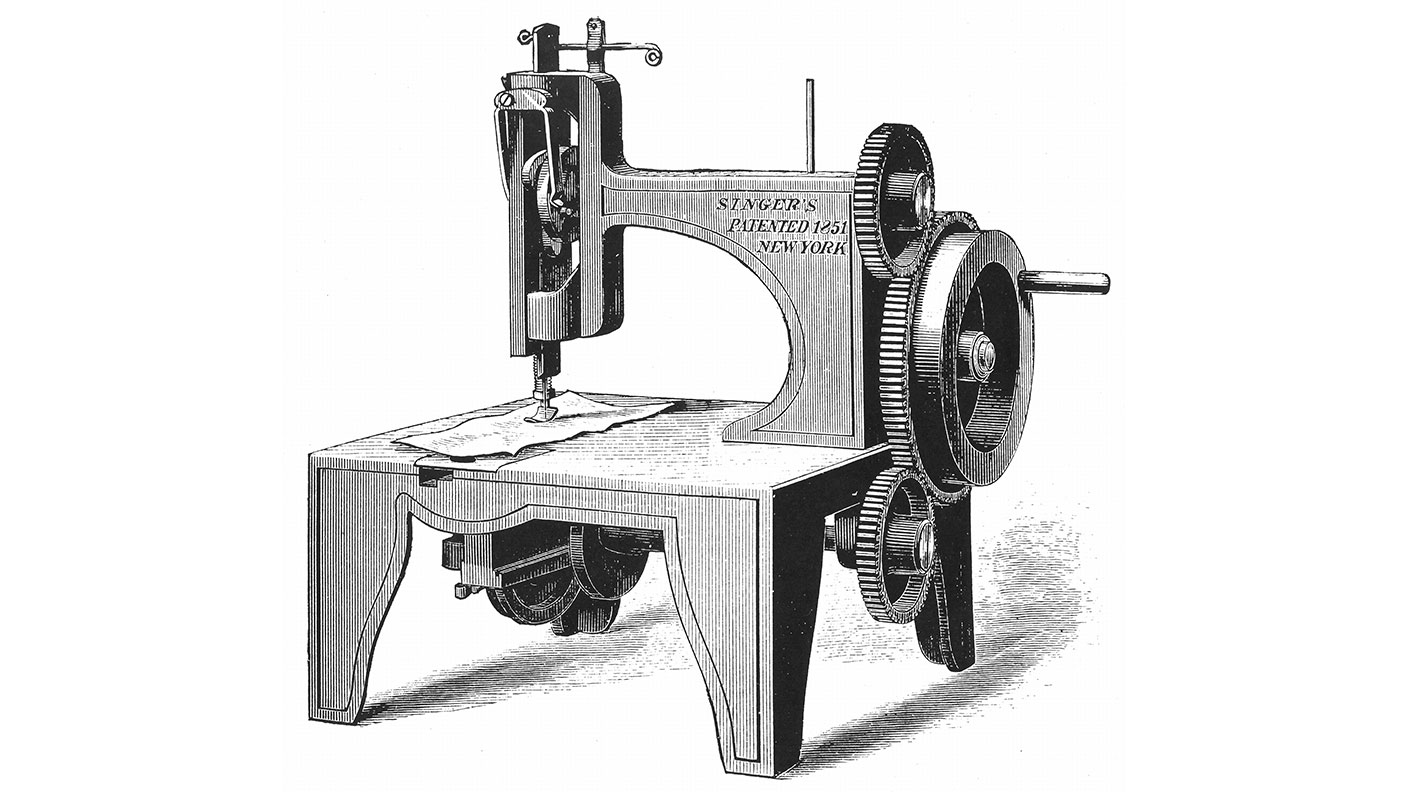
Get the latest financial news, insights and expert analysis from our award-winning MoneyWeek team, to help you understand what really matters when it comes to your finances.
You are now subscribed
Your newsletter sign-up was successful
Want to add more newsletters?

Twice daily
MoneyWeek
Get the latest financial news, insights and expert analysis from our award-winning MoneyWeek team, to help you understand what really matters when it comes to your finances.

Four times a week
Look After My Bills
Sign up to our free money-saving newsletter, filled with the latest news and expert advice to help you find the best tips and deals for managing your bills. Start saving today!
Isaac Merritt Singer was a colourful kind of chap. He was born in Pittstown, New York, in 1811, and left school at the age of 12. After working in various unsatisfying careers, he decided to follow his passion for acting, and formed his own moderately unsuccessful travelling theatre troupe, the Merritt Players.
He had an eye for the ladies, and in the nine years that he was touring and taking odd jobs here and there to pay the bills, he ended up as father to 24 children.
Eventually, however, his troupe went bust and was disbanded, and Singer started work as an apprentice mechanic, a career in which he carved out considerably more success.
MoneyWeek
Subscribe to MoneyWeek today and get your first six magazine issues absolutely FREE

Sign up to Money Morning
Don't miss the latest investment and personal finances news, market analysis, plus money-saving tips with our free twice-daily newsletter
Don't miss the latest investment and personal finances news, market analysis, plus money-saving tips with our free twice-daily newsletter
By 1839, he had invented and patented a machine for drilling rock. And in 1851, he was working in a machine shop in Boston, and was given a broken sewing machine to repair. Not only did he repair the original machine, within a fortnight he had invented a whole new, better one. And on this day that same year, he patented his invention.
As happened with so many inventions, Singer's machine built on previous inventors' work, most notably that of Elias Howe. Howe sued Singer for infringing his patent, and won royalty payments that made him a rich man. By 1859, he was collecting some $400,000 a year.
Singer set up in business with Edward Clark, and toured the USA showing off his machines. They sold like hot cakes. By 1860, Singer was the biggest sewing-machine manufacturer in the world.
But it wasn't just machinery that Singer developed. He came up with a way of selling his machines that made him stupendously rich – credit instalment plans. Singer's "a dollar down, a dollar a week" plans led to the company's phenomenal success.
In his later years, Singer retired to Paignton in Devon, where he had a grand residence built – Oldway House, which included a private theatre. He died in 1875, aged 63.
Get the latest financial news, insights and expert analysis from our award-winning MoneyWeek team, to help you understand what really matters when it comes to your finances.

-
 Should you buy an active ETF?
Should you buy an active ETF?ETFs are often mischaracterised as passive products, but they can be a convenient way to add active management to your portfolio
-
 Power up your pension before 5 April – easy ways to save before the tax year end
Power up your pension before 5 April – easy ways to save before the tax year endWith the end of the tax year looming, pension savers currently have a window to review and maximise what’s going into their retirement funds – we look at how
-
 31 August 1957: the Federation of Malaya declares independence from the UK
31 August 1957: the Federation of Malaya declares independence from the UKFeatures On this day in 1957, after ten years of preparation, the Federation of Malaya became an independent nation.
-
 13 April 1960: the first satellite navigation system is launched
13 April 1960: the first satellite navigation system is launchedFeatures On this day in 1960, Nasa sent the Transit 1B satellite into orbit to provide positioning for the US Navy’s fleet of Polaris ballistic missile submarines.
-
 9 April 1838: National Gallery opens in Trafalgar Square
9 April 1838: National Gallery opens in Trafalgar SquareFeatures On this day in 1838, William Wilkins’ new National Gallery building in Trafalgar Square opened to the public.
-
3 March 1962: British Antarctic Territory is created
Features On this day in 1962, Britain formed the British Antarctic Territory administered from the Falkland Islands.
-
10 March 2000: the dotcom bubble peaks
Features Tech mania fanned by the dawning of the internet age inflated the dotcom bubble to maximum extent, on this day in 2000.
-
9 March 1776: Adam Smith publishes 'The Wealth of Nations'
Features On this day in 1776, Adam Smith, the “father of modern economics”, published his hugely influential book The Wealth of Nations.
-
 8 March 1817: the New York Stock Exchange is formed
8 March 1817: the New York Stock Exchange is formedFeatures On this day in 1817, a group of brokers moved out of a New York coffee house to form what would become the biggest stock exchange in the world.
-
7 March 1969: Queen Elizabeth II officially opens the Victoria Line
Features On this day in 1969, Queen Elizabeth II took only her second trip on the tube to officially open the underground’s newest line – the Victoria Line.
